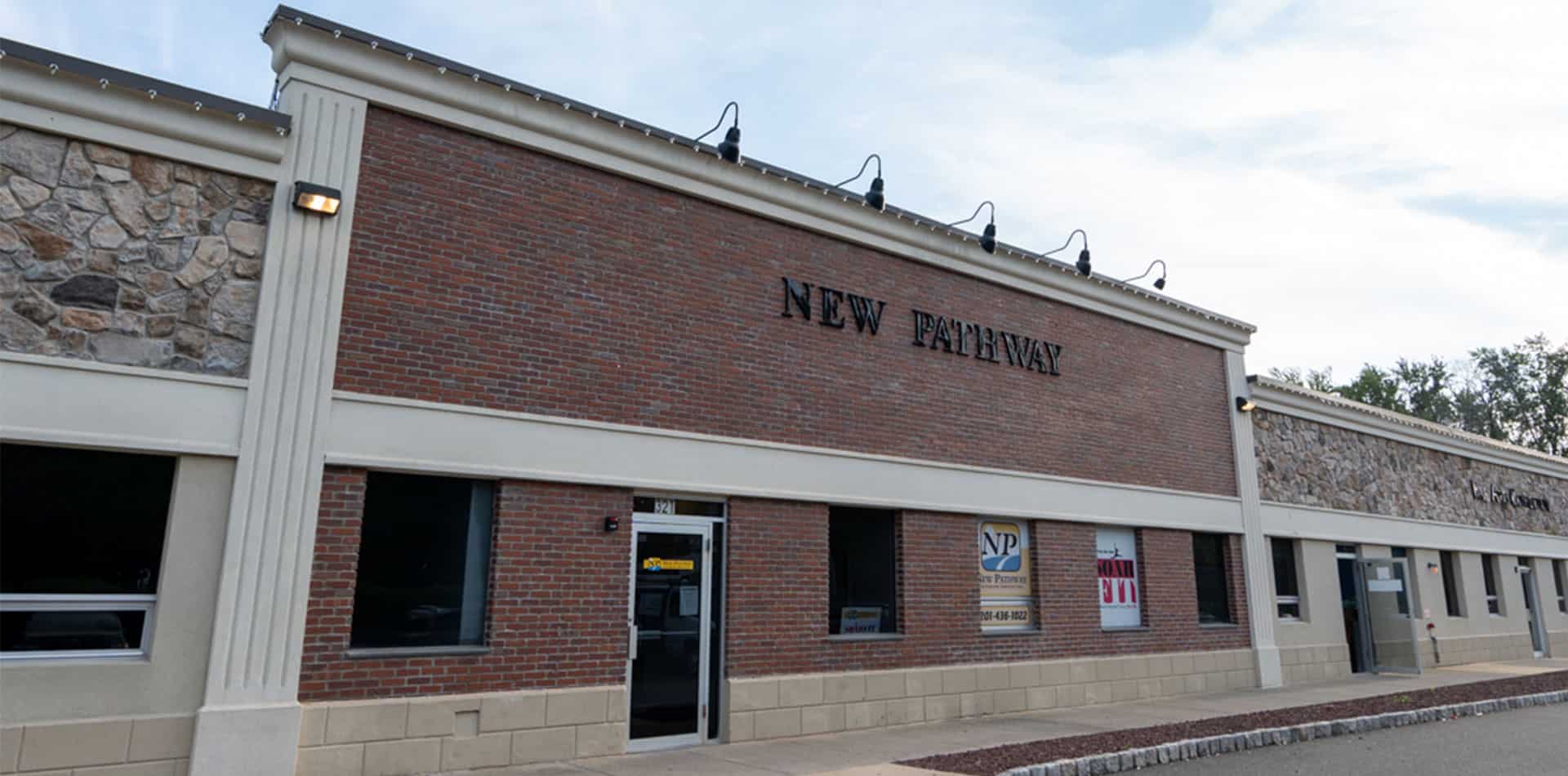Teen & Adolescent Mental Health Counseling & Behavioral Health Therapy
What you will learn:
- Definitions of co-occurring or dual diagnosis disorders.
- Stats regarding the prevalence of mental health and substance use disorders among teens.
- Guardian Recovery’s holistic approach to dual diagnosis care.
We Specialize In Adolescent Treatment
"*" indicates required fields
By selecting this checkbox and entering mobile number I agree to receive GR Support from Guardian Recovery Network Holdings LLC. Message frequency varies. Text HELP to 96909 for help, Text STOP to 96909 to end. Msg&Data Rates May Apply. By opting in, I authorize Guardian Recovery Network Holdings LLC. to deliver SMS messages using an automatic dialing system and I understand that I am not required to opt in as a condition of purchasing any property, goods, or services. By leaving this box unchecked you will not be opted in for SMS messages at this time. Click to read Terms and Conditions & Privacy Policy.
Troubling teenage behaviors and mental health concerns can negatively affect their relationships, academic performance, overall well-being, and more. However, these symptoms and behaviors aren’t a true reflection of who they are, nor who they will become. Rather, they’re a snapshot of a particular moment in time—and a symptom of underlying issues.
Guardian Recovery is deeply committed to holistic care that addresses the causes and not merely the symptoms of behavioral and mental health concerns. By focusing on the underlying causes—from trauma and genetic predispositions to mental health concerns and environmental factors—we empower your child to overcome immediate behavioral obstacles, tackle hidden hurdles, and build a foundation for lifelong resilience and well-being.
This holistic approach, then, sets us apart as an unparalleled provider of dual-diagnosis (aka co-occurring disorder) care. Able to treat both mental health and substance use disorders concurrently and effectively, we empower your child to step into their true selves—and a brighter future
Addressing Mental Health in Holistic Adolescent Addiction Treatment
Mental health, behavioral issues, and substance use may seem like independent concerns, but they’re inextricably intertwined. Depression, anxiety, trauma, ADHD, eating disorders, and more can lead to self-destructive behaviors including truancy, defiance, indifference, substance misuse, etc. These behaviors, then, can worsen mental health, which in turn can escalate behavioral concerns—perpetuating a vicious cycle.
Guardian Recovery breaks this cycle via holistic behavioral, mental health, and substance use treatment. Empowering teens and families to step off the path of self-destruction and step into a bright future, our comprehensive care treats the causes as opposed to the symptoms of mental health and behavioral concerns.
Get Local Help
Questions?
Learn More About the Recovery Process
- Our Approach
- The Treatment Process
- Frequently Asked Questions
- Insurance Check
- Ask a Question
Dual Diagnosis & Assessing Mental Health Disorders
Substance use and mental health disorders often go hand in hand. When they occur at the same time, the condition is known as a dual diagnosis or as co-occurring conditions.
Adolescents facing dual diagnosis often find themselves trapped in a relentless cycle. In their quest for relief, they may turn to substances as a way to escape the overwhelming challenges of their mental health symptoms. However, this path can lead to a harsh realization: The very substances they seek for comfort can deepen their struggles. For example, if a teenager is grappling with depression, they might choose alcohol or drugs to dull their emotional turmoil, only to find that these substances amplify their despair.
This intricate interplay highlights the urgent need for a comprehensive, holistic treatment approach that not only addresses both mental health and substance use issues but also effectively identifies them.
At Guardian Recovery, our comprehensive assessment process evaluates your teen’s physical, emotional, and mental well-being, seeking to identify related issues. Armed with a full understanding of your teen’s struggles and strengths, we then provide your teen with the tools they need to navigate their challenges and foster resilience.
Your Teen's Transformation Starts
Here
Guardian Recovery Adolescent can help your teen take control of their lives, putting them on a path to a brighter future filled with possibility.
The Link Between Co-Occurring Disorders & Teen Substance Use
Mental health, behavioral issues, and substance use are three sides of the same triangle. They often occur concurrently and can significantly influence one another, leading to a repetitive cycle that escalates and worsens conditions.
In fact, research reveals that adolescents with substance use disorders also have high rates of co-occurring mental illness. What’s more, since the brain continues to develop in adolescence, the circuits that control executive functions such as impulse control and decision-making are among the last to mature. Thus, adolescents are at an increased risk for substance use and the development of a substance use disorder, which can also be a risk factor for mental illness later in life.1 It’s not surprising, then, that the onset for mental illness and substance use disorders often occurs during adolescence.2
While all of this information sounds troubling, help and hope are available via Guardian Recovery’s dual diagnosis treatment. A form of integrated treatment, our dual diagnosis care treats both mental health and substance use conditions currently—as opposed to tackling them independently. Employing evidence-based strategies such as cognitive behavioral therapy (CBT) and motivational interviewing (MI), our integrated approach boosts interpersonal coping skills and supports motivation for recovery.2
According to insights from the National Institute on Drug Abuse, this type of integrated, concurrent-disorder treatment has proven consistently superior to treating each disorder independently.2
How Common Are Co-Occurring Disorders Among Teens?
Research has found a significant link between mental health disorders and substance use among teens. The 2023 National Survey on Drug Use and Health (NSDUH) offers several insights on co-occurring major depressive episodes and substance use disorders among those age 12 to 17:3
- More than 18.1% (4.5 million people) in this age group had a major depressive episode (MDE) in the past year.
- Those with past year MDE were more likely than their counterparts without an MDE to have used illicit drugs (28.4% vs. 11.6%), marijuana (21.9% vs. 8.7%), or opioids (3.5% vs. 1.9 %) in the past year. They were also more likely to have been past month binge alcohol users (7.1% vs. 3.1%).
- Those with a past year MDE were more likely than those without a past year MDE to have used tobacco products or to have vaped nicotine in the past month (14.9% vs. 5.7%).
- Roughly 3 in 10 adolescents aged 12 to 17 with a co-occurring MDE and an SUD in the past year did not receive treatment for either condition.
- Among the 609,000 adolescents aged 12 to 17 with a co-occurring MDE and an SUD who received either substance use treatment or mental health treatment in the past year most (68.8%) received only mental health treatment.
Additionally, data from the National Institute on Drug Abuse shows high rates of comorbid substance use disorders and anxiety disorders—which include generalized anxiety disorder, panic disorder, and post-traumatic stress disorder.4 Plus, the Substance Abuse and Mental Health Services Administration (SAMHSA) reveals a direct correlation between trauma and substance use as well as the presence of posttraumatic stress (and other trauma-related disorders) and substance use disorders.5
The Impact of Co-Occurring Disorders on Treatment Outcomes
Those who struggle with both substance use and mental health disorders may experience more intense symptoms and tend to have higher rates of relapse and difficulty sustaining long-term recovery. Moreover, co-occurring disorders can complicate the treatment process by making it more challenging to correctly diagnose and address both simultaneously. As such, a well-informed understanding of these disorders is imperative to developing a personalized treatment plan that addresses both of them effectively.
Guardian Recovery is a key ally in co-occurring disorder care for your teen. Well-versed in both diagnosing and treating a host of mental health conditions and substance use disorders, our concurrent treatment is the gold standard of care.
Mental Health Disorders Treated During Substance Use Treatment
Guardian Recovery is equipped to tackle a wide range of mental health conditions, including:
- Major depressive disorder
- Anxiety disorders, such as social anxiety and panic attacks
- Bipolar disorder
- Attention deficit hyperactivity disorder (ADHD)
- Post-traumatic stress disorder (PTSD)
- Borderline personality disorder (BPD)
- Eating disorders
Complimentary Insurance Check
Find Out Today!
"*" indicates required fields
Does your insurance cover mental health?

Our Locations
Our Facilities & Teams Transform Lives
Changing lives by providing comprehensive support and rehabilitation, empowering individuals to overcome addiction and regain control of their health and well-being.
Effective Strategies & Therapies for Treating Teen Mental Health Disorders
The evidence-based therapies and approaches we use address mental health issues in teens align closely with those used to treat substance misuse. As a result, many of these strategies are used for dual diagnosis treatment, making the overall recovery process more efficient and effective.
Our therapeutic modalities for substance use and mental health disorders include:
- Psychotherapy, such as cognitive-behavioral therapy (CBT), dialectical behavior therapy (DBT), motivational interviewing (MI), and eye movement desensitization reprocessing (EMDR)
- Group and family therapy
- Medication-assisted treatment (MAT), if needed
- Mindfulness, meditation, and deep breathing exercises
- Exercise and physical activity
- Proper nutrition and sleep hygiene
- Art, music, and other expressive therapies
- School-based interventions and academic programs
- Aftercare planning
- Sober living options
The Benefits of Mental Health Treatment for Your Child’s Treatment Journey
Guardian Recovery’s mental health treatment for teens offers many benefits and provides a supportive environment that allows them to explore their thoughts and feelings, increase self-awareness, and strengthen resilience.
Mental health treatment benefits include:
- Symptom relief and management using effective strategies.
- Improved coping skills, stress management, and quality of life.
- Strengthened relationships with loved ones due to improved communication skills and emotional regulation.
- Increased self-awareness, personal growth, and understanding of thoughts, feelings, and behaviors.
- Reduced severity and duration of disorders due to early intervention and treatment.
- Greater ability to handle challenges and prevent crises.
- Increased resilience and ability to overcome setbacks and adversity.
- Improved confidence and self-esteem.
- Empowerment by taking an active role in treatment and managing mental health.
- Learned skills and strategies that can have lasting effects into adulthood.
Ready to Change Your Teen’s Future?
Your Next Steps
Contact Us Today To Get Help for Your Teen
Is your teen feeling lost, overwhelmed, or struggling with their mental health? Are you noticing changes in their behavior, such as withdrawing from friends, neglecting responsibilities, or engaging in risky activities?
You’re not alone. At Guardian Recovery, we understand that these challenges can be incredibly difficult for both teens and their families. Our specialized programs offer a safe and supportive space for teens to heal, learn, and grow. We work closely with parents and guardians to develop personalized treatment plans that address the root causes of your teen’s struggles and equip them with the tools they need to thrive.
Ready to take the next step? Our admissions process is simple and straightforward. Contact our experienced team today to discuss your teen’s unique needs, explore treatment options, and verify your insurance.
Let’s work together to help your teen find their way.
Reach out to Guardian Recovery now.
FAQs
It can be challenging to determine if your teen has a mental health disorder, as signs and symptoms vary greatly. However, behavioral changes, mood swings, withdrawal from people and activities, substance use, and persistent feelings of depression or anxiety should warrant further investigation. If your teen is experiencing any of these symptoms, Guardian Recovery can help to not only diagnose but to treat co-occurring mental health disorders.
Mental health treatment with Guardian Recovery can provide your teen with the necessary tools and strategies to effectively address underlying issues that may be linked to their substance use. Therapy can help them find more effective ways of managing stress and emotions, reducing the chances of relapse due to the need to self-medicate.
Mental health treatment can help improve your teen’s behavioral issues by helping them to address psychological issues that may be adversely affecting their behavior. It can also help them develop better coping skills and provide a supportive environment where they can learn more effective communication skills, problem-solving techniques, and the empowerment and motivation they need to make positive changes in their life.
You and your family can help with your teen’s treatment by providing emotional support and understanding throughout their recovery. This includes actively listening to their concerns and acknowledging their feelings are valid. Family therapy sessions can also help everyone involved learn healthier ways of communicating and how they may become advocates for their recovery instead of enablers for their mental health and substance use issues. Guardian Recovery firmly believes in the power and strength of families. Thus, we leverage this power by involving families throughout the treatment process. Along with ongoing communication, we offer family therapy, workshops, and parent support groups.
Sources
- National Institute on Drug Abuse. (2018). Common Comorbidities with Substance Use Disorders Research Report. Part 1: The Connection Between Substance Use Disorders and Mental Illness.
- National Institute on Drug Abuse. (2018). Common Comorbidities with Substance Use Disorders Research Report. What are the treatments for comorbid substance use disorder and mental health conditions?
- Substance Abuse and Mental health Services Administration. (2023). Key Substance Use and Mental Health Indicators in the United States: Results from the 2023 National Survey on Drug Use and Health.
- National Institute on Drug Abuse. (2018). Common Comorbidities with Substance Use Disorders Research Report. Part 1: The Connection Between Substance Use Disorders and Mental Illness.
- Center for Substance Abuse Treatment (US). Trauma-Informed Care in Behavioral Health Services. Rockville (MD): Substance Abuse and Mental Health Services Administration (US); 2014. (Treatment Improvement Protocol (TIP) Series, No. 57.) Chapter 3, Understanding the Impact of Trauma.
Reviewed professionally for accuracy by:

Ryan Soave
L.M.H.C.
Ryan Soave brings deep experience as a Licensed Mental Health Counselor, certified trauma therapist, program developer, and research consultant for Huberman Lab at Stanford University Department of Neurobiology. Post-graduation from Wake Forest University, Ryan quickly discovered his acumen for the business world. After almost a decade of successful entrepreneurship and world traveling, he encountered a wave of personal and spiritual challenges; he felt a calling for something more. Ryan returned to school and completed his Master’s Degree in Mental Health Counseling. When he started working with those suffering from addiction and PTSD, he found his passion. He has never looked back.




